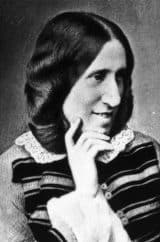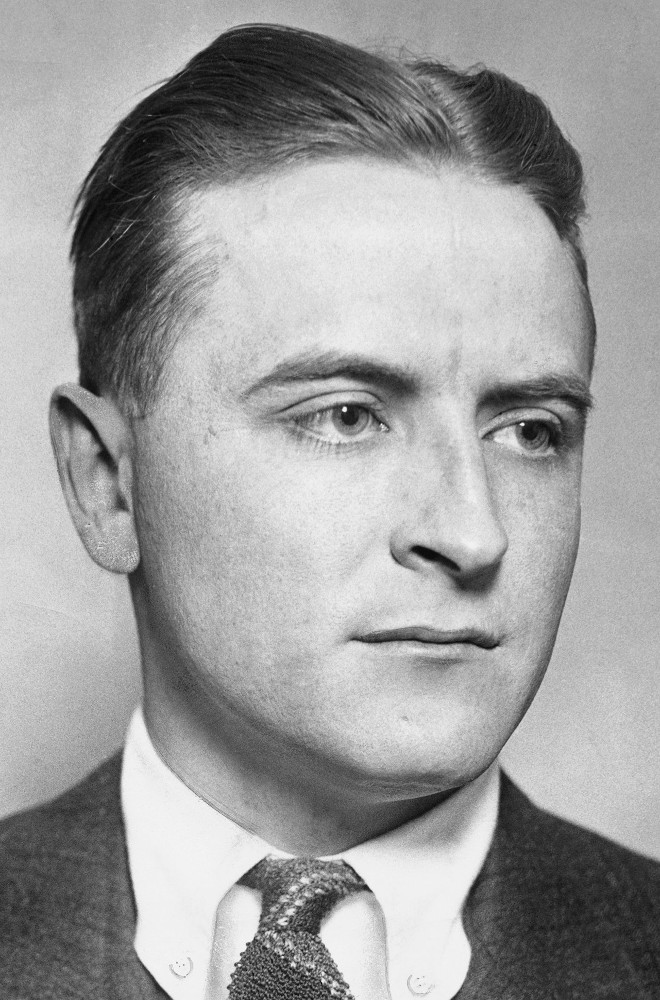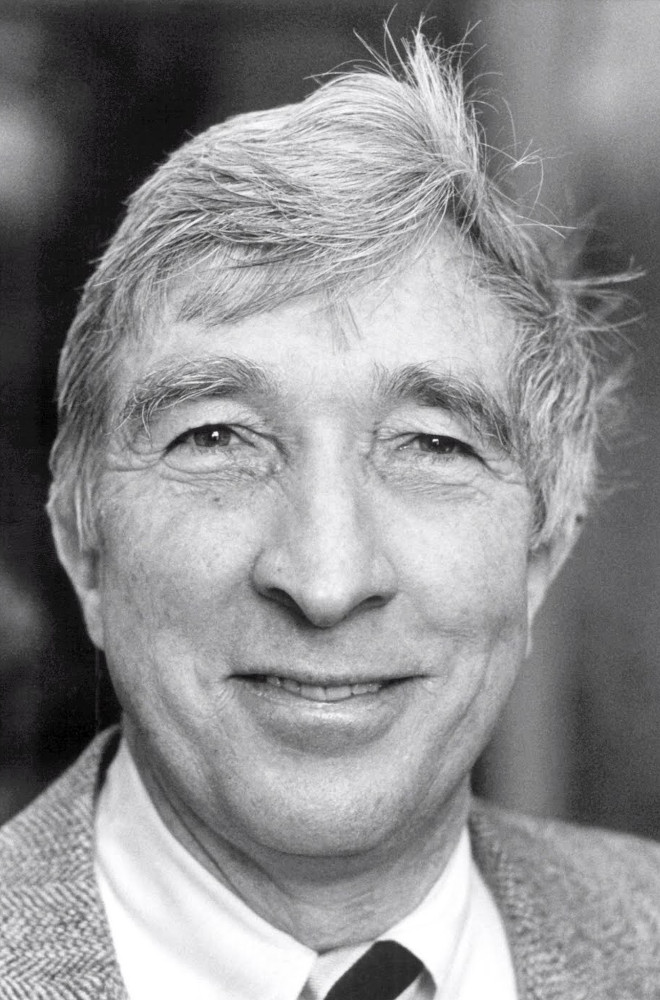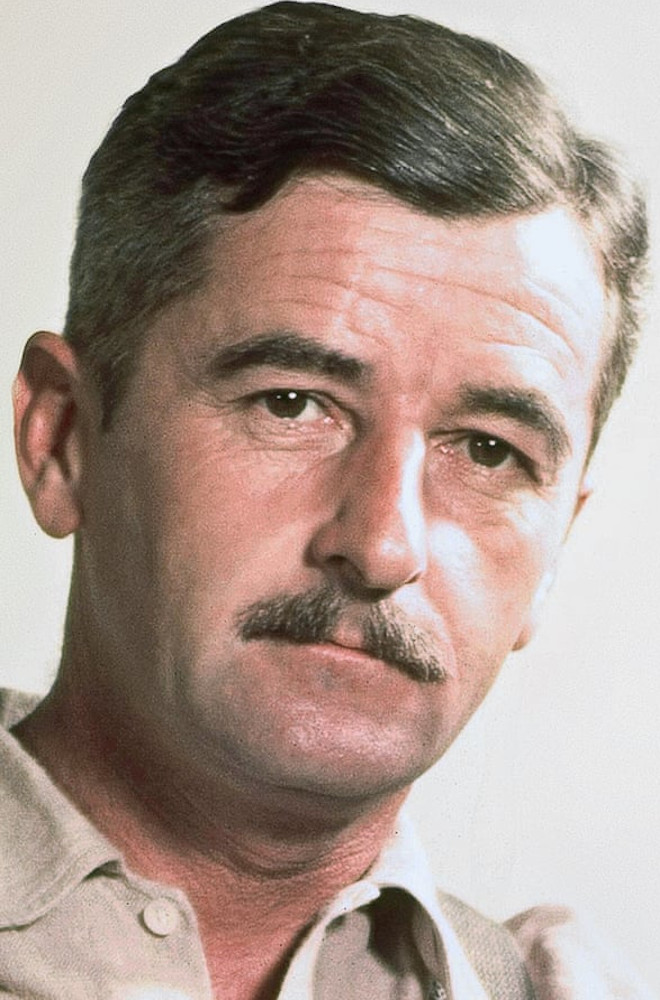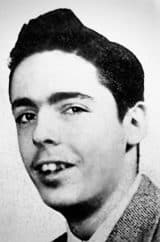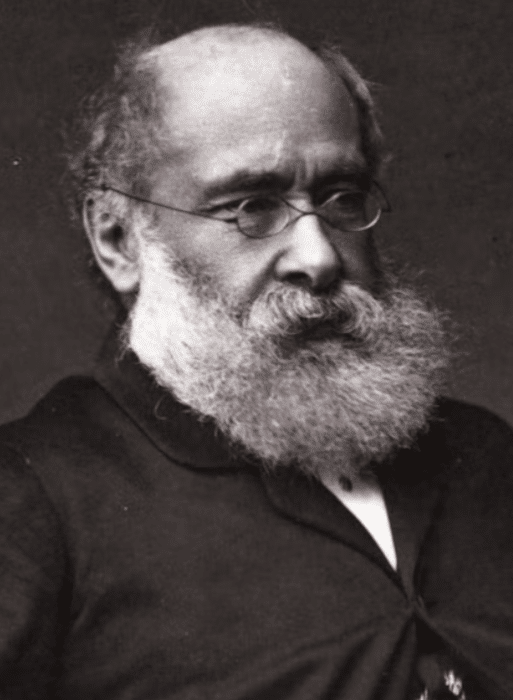 Outsider
Outsider
Trollope, as the offspring of parents with high social status and aspirations but little money, had something of an unhappy childhood. Before he joined the Post Office as a lowly clerk, his career prospects were meager: he almost became a soldier in Austria.
Like his contemporary George Eliot, he often saw Victorian society through a unique lens. For instance, his warm feelings towards Ireland, where many of his early novels are set, ran counter to the typical sentiment in England and did not make him many friends.
Best Anthony Trollope Books
| Photo | Title | Rating | Length | Buy |
|---|---|---|---|---|

|
Chronicles of Barsetshire Series | 9.90/10 | 6 Books | Check Price On Amazon |

|
Palliser Series | 9.82/10 | 6 Books | Check Price On Amazon |

|
He Knew He Was Right | 9.68/10 | 584 Pages | Check Price On Amazon |

|
Orley Farm | 9.62/10 | 286 Pages | Check Price On Amazon |
A Writer with a Day Job
Though initially (and by his own admission) fairly useless as a civil servant, he came into his own once transferred to Ireland and soon began to be assigned additional responsibilities. These often prevented him from writing as much as he might have liked.
Nevertheless, this disciplined writer struggled on: he set himself the goal of writing 250 words in each 15-minute interval he could snatch away from work, for a total of 3 hours or about 6 printed pages per day. He only began writing full-time at the age of 52. Today, he’s barely remembered as the person who introduced the “pillar” style of postbox to Britain and famous as the author of no fewer than 47 novels and several other assorted books. Today, he’s almost universally regarded as a major writer. Here are the ten best Anthony Trollope books, ranked more or less by popularity:
Chronicles of Barsetshire Series

 An Accidental Epic
An Accidental Epic
The Warden, the first book in this series, was Trollope’s first real commercial success and was originally planned as a stand-alone novel. Once he’d created the rich fictional world of Barsetshire county, however, he found himself returning to it again and again for inspiration, much to his readers’ delight.
Forthright Anthony Trollope book reviews sometimes call the Chronicles of Barsetshire something along the lines of “literary soap operas”. The social, political, and religious criticism of writers like Eliot and Dickens is largely absent from these books. This may be because these works deal largely with the kind of people the author himself would have come into regular contact with, mostly the rural upper-middle class and clerics from the Church of England.
Hard to Read Just One
Though far from an all-encompassing portrait of Victorian English society, the Barsetshire novels are widely regarded as the best Anthony Trollope book series. Though the author does tend to steer the stories in the direction he and his readers would prefer to see them go, each character is exceptionally well-conceived and revealed. When one of them is reintroduced in a later book, it’s like running into an old friend (or, sometimes, an obnoxious aunt you forgot you were related to).
Almost every Barsetshire book would be in the running for best Anthony Trollope novel on its own merits. To truly appreciate them, however, you should really start with The Warden and read them sequentially up to The Last Chronicle of Barset. The more you immerse yourself in this fictional corner of England, the more real it becomes until you can’t wait for the next time you’re able to visit.
Palliser Series
 A Series of Serials
A Series of Serials
In Trollope’s time, novels (including many in the Palliser cycle) were often serialized: published chapter by chapter in a newspaper or magazine. We shouldn’t underestimate the effect of this kind of constant reader feedback on the literature of the time. Successful serials could practically make readers queue up outside the printing presses. Conversely, a few weak installments could see a novel getting quietly dropped, never to be published in book form.
Groups of novels sharing the same fictional setting and characters, perhaps following sequentially on one another, weren’t unknown in Victorian England but nor was this practice as common as it is today. It was, of course, the perfect vehicle for an author as popular as Trollope to generate more sales.
A Tangled Web
To pull it off, his characters had to be substantial enough to stand the test of time, and their environment broad enough to support several complex story arcs. The Palliser books generally revolve around the same themes as the best Anthony Trollope series, namely the Chronicles of Barsetshire. However, the former is set in the corridors of power rather than small-town England.
His portrayal of the private and political lives of senior parliamentarians is often less than flattering. The English government of the time was indeed somewhat corrupt. (Before you go feeling too smug, though, you should probably read Gore Vidal’s 1876 or Empire for an American comparison.) None of the characters are overly simplified, though. Along with believable plots, this feature makes the Palliser series some of the best novels by Anthony Trollope.
The Way We Live Now

 The Times, They Are a’Changing
The Times, They Are a’Changing
For the most part, Trollope’s characters live in a world where traditional values are valued, everyone knows their place, and the structure of society isn’t about to be turned on its head. This doesn’t mean that he was blind to the social and economic changes happening all around him.
Like in Émile Zola’s La Curée, the backdrop of The Way We Live Now includes a new kind of Capitalism. Speculators can gain or lose fortunes regardless of their social class and, as it turns out, having a family crest doesn’t make someone immune to greed’s siren song.
Modern Resonance
According to the author himself, this book is partly based on his fear that people were beginning to see dishonesty as somewhat respectable as long as it succeeded in making money. Judging by today’s newspapers, it’s now commonly accepted that it’s better to be a rich scoundrel than an honest pauper.
This book is way more readable than its weight and intricate plot would suggest. What makes it the best Anthony Trollope book in the eyes of many, however, is its lifelike, well-developed characters. As in the Palliser novels, a few of these are indeed despicable, but none are completely repulsive.
He Knew He Was Right

 Not Quite a Cry for Equality of the Sexes
Not Quite a Cry for Equality of the Sexes
Trollope was no feminist, at least by modern standards. He did not, however, despise or disparage women, and is known as one of the few male writers of his time capable of writing compelling female characters. By those lights, He Knew He Was Right is one of the best-rated Anthony Trollope books, though he’s certainly no Sara Paretsky.
As a middle-class civil servant who wrote fiction on the side (and needed the income from both jobs), he was hardly going to make waves or stir up unnecessary controversy. Even so, several of the best Anthony Trollope novels include or at least allude to domestic abuse and the oppression of women, along with intolerance, religious and political leaders being out of touch with reality, media and its agendas, and the depraved lifestyles of the idle rich.
Complex to a Fault
One characteristic of the best books by Anthony Trollope is the multiple, interconnected sub-plots. Keeping all of these straight can indeed be a chore, though his relatively simple writing style (by Victorian standards, anyway) helps you to keep chugging along without too much difficulty.
Many of these plots and characters seem a little redundant, though. The main story regarding Louis and Emily Trevelyan already makes the point that women being subordinate to their husbands leads to unhappiness for both. Too many variations on the same theme, and things get monotonous.
Orley Farm

 Where There’s a Will, There’s an Unhappy Relative
Where There’s a Will, There’s an Unhappy Relative
The most famous Victorian novel about a lawsuit regarding an inheritance is undoubtedly Charles Dickens’ Bleak House. Orley Farm is a strong contender for second place, as well as Anthony Trollope’s best book according to his own account.
While Bleak House is mostly a satirical take on the outmoded and ineffective estate law system of that time, Orley Farm focuses on the people involved. The courtroom intrigue is certainly dramatic and probably accurate enough (Trollope’s own father was a lawyer, though not a very successful one). Human relationships and emotions are given more emphasis than questions of justice and morality, though: this isn’t a legal novel in the John Grisham sense.
A Very Entertaining Read
You’d swear that 19th-century writers were paid by the pound…In modern terms, all of the top Anthony Trollope books including Orley Farm are guilty of some padding and could have been made about one-third shorter. They’re not typically just verbose for the fun of it, though.
Sometimes, minor characters are introduced just to hold a mirror up to some aspect of one of the protagonists. Side plots reveal the kinder natures of the villains and the shortcomings of the heroes. After all, you don’t read Anthony Trollope books in order to get from Startling Opening to Happy Ending in the time it takes to watch a movie, but rather to appreciate the layers and depth of his warm, breathing characters.
Miss Mackenzie

 An Unusual Experiment
An Unusual Experiment
Most popular Anthony Trollope books, and indeed the majority of the bestsellers of his time, feature young ladies hurtling from puberty to marriage as fast as humanly possible. This was not only acceptable but the proper thing for them to do, back in the day.
Miss Mackenzie, by contrast, features an older heroine. She’s no social butterfly, not especially pretty, and self-possessed instead of allowing herself to be pushed around by parents, relatives, suitors, and pastors. Though there is no shortage of interesting, relatable female characters in the Anthony Trollope book list, Margaret Mackenzie is certainly one of the most memorable in her role, which is central to the plot.
Fun to Read
As a somewhat sentimental romance, where good things come to the virtuous and the wicked eventually receive their highly ironic comeuppance, Miss Mackenzie isn’t exactly a classic. It’s worth remembering, though, that Trollope wasn’t independently wealthy: he wrote partly for the money and often chose themes and approaches to suit his readers.
As long as you can make your peace with the somewhat sappy nature of this novel, you’re almost certain to enjoy it. This is one of Trollope’s funnier books, though the jokes aren’t exactly in-your-face obvious. Cleverness and eloquence are prioritized over slapstick and punch lines.
Doctor Wortle’s School

 Across the Pond
Across the Pond
Several of the best Anthony Trollope books feature American characters. Though most Britishers at the time viewed their former colony as only semi-civilized, much like Australia and South Africa at the time, Trollope counted several famous American authors as friends and crossed the Atlantic a number of times.
Trollope’s American characters aren’t just introduced just to add a little color. They often serve as mouthpieces or examples of values that weren’t so much in fashion in England at the time: greater freedom for women, a tendency to outspokenness, a less formulaic approach to religion, and a deep-seated dislike of hypocrisy. In Doctor Wortle’s School, the Peacockes represent all of these to some extent.
A Touching Story
This is one of the shortest of this author’s novels and therefore a good option if you only want to dip a toe into the waters of Victorian literature before tackling a serious novel. (An Old Man’s Love, Anthony Trollope’s last book, is similar in length but does not show his narrative skill at its best.)
Like in The Old Man and the Sea, brevity only strengthens this book’s themes: compassion, courage, and perseverance in the face of undeserved condemnation. As in Orley Farm, Trollope raises the question: if society will only accept what you know in your heart to be unjust, what road should you take?
Rachel Ray

 Life as an Outsider
Life as an Outsider
Two of the most popular Victorian hobbies were foxhunting (which Trollope greatly enjoyed, incidentally) and gossip. As a keen and experienced observer of human nature, the author wrote several stories about the destructive effects of the latter, including Doctor Wortle’s School and Rachel Ray.
This is another of the shorter (and, in its time, best-selling) Anthony Trollope books. There are only two important plot lines, both involving marriage: one where the course of true love does not run smooth, and another where the idea of a husband’s virtual ownership of his wife is critically examined.
Not Too Flamboyant
Rachel Ray is one book in which Trollope more closely approaches the realistic style of literature. Instead of being overloaded with feelings and the author’s own impressions of events, the story is told simply, through detailed descriptions of everyday events and scenes.
Tension in this story derives from numerous sources: class, religious and political differences, impulses of the heart, and of course money. Seen in another way, this is a tale of how a bucolic small town can be disrupted when somebody from the Big City arrives and doesn’t bother trying to fit in.
The American Senator

 Two Love Stories
Two Love Stories
This novel features two female protagonists: one the perfect Victorian lady, all decorum and passivity, the other a hard-nosed realist. The former and her soulmate continue to pass each other like ships in the night rather than say anything improper; the latter knows that an advantageous marriage is her only hope of improving her lot in life and goes after it like a bull terrier (though a very polite and well-bred one).
The American senator of the title is mostly an observer and doesn’t take much of an active part in events. His role is mainly satirical, pointing out several of the more bizarre and outdated facets of English country life.
Humor Me
Though all of Anthony Trollope’s best books contain a healthy helping of whimsy, the inclusion of the senator and the numerous missed connections between the lovers make this one especially funny. Caveat lector, though.
Though Trollope isn’t as long-winded as many other authors of his time, he still doesn’t always err on the side of brevity. Victorian literary tastes didn’t run to one-liners: a joke wasn’t considered funny unless it contained at least four independent clauses, a double entendre, and a classical allusion.
Lady Anna

 Raising Hackles
Raising Hackles
Written only once Trollope’s reputation as a writer was firmly established, Lady Anna was one of his most controversial books at the time. The mere idea that a woman could choose (and be allowed to) marry for love even outside her social class was already near-heretical. Setting this novel around the year 1832, when a much greater proportion of British commoners were allowed to vote for the first time, only added fuel to the fire.
The concept of a woman’s “duty” to marry in order to improve her family’s fortunes is starkly contrasted with the matrimonial irresponsibility of Earl Lovel, which eventually leads to Anna finding herself in a predicament. The author demonstrates his usual understanding of human nature in portraying the characters, though. All the men aren’t simply self-centered jerks, nor are all the women weak and indecisive.
Ambivalent and Unsettled
Trollope himself doesn’t use this book as a vehicle for taking sides in the various questions he raises. The ending also seems a little too pat, as if the author yanked the steering wheel to the right just in time to avoid the plot becoming a tragedy.
This lack of a satisfying conclusion is far from a deal-breaker, though. In particular, I enjoyed the way assumptions about class, money, and the convoluted legal system of the time are explained through events. The Victorian period isn’t something a modern reader can figure out by consulting histories: Lady Anna does a great job of bringing it to life.
Final Thoughts
Anthony Trollope’s immense talent and diligence in writing led to an enormous body of work. It’s difficult to choose his best novels out of so many universally well-crafted contenders. None of his novels set in Ireland are included on this list, for instance, which may well not have been the case if the title had been “Top Eleven”.
If you’re new to Victorian literature, you will probably be pleasantly surprised. It’s important to accept works like these on their own merit, though. People in different times and places had their own ways of thinking, of expressing themselves, and of judging right and wrong. Coming to understand these is a good way of expanding your own horizons and frame of reference.
Michael Englert
Michael is a graduate of cultural studies and history. He enjoys a good bottle of wine and (surprise, surprise) reading. As a small-town librarian, he is currently relishing the silence and peaceful atmosphere that is prevailing.

